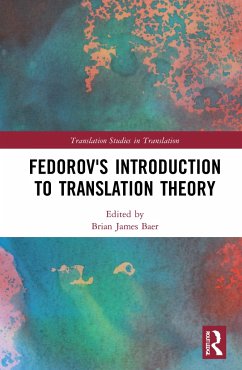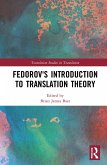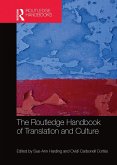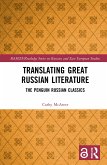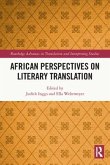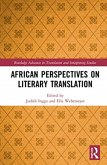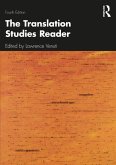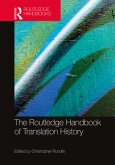This is the first English translation of Andrei V. Fedorov's classic 1953 text Vvedenie v teoriiu perevoda / Introduction to Translation Theory. Fedorov was the first to argue that translation theorizing should be based on linguistics, due to the fact that language is the common denominator of all translation. In addition, this text offers a concise but thorough comparative overview of thinking on translation in Western Europe and Russia.
The detailed annotations and substantial introduction by the leading scholar and award-winning translator Brian James Baer inscribe Fedorov's work in the political and cultural context of the Soviet Union, highlighting the early influence of Russian Formalism on Fedorov's thinking. This volume is a model of scholarly translation that fills a major gap in our understanding of Soviet translation theory, which will compel a rethinking of current histories of the field.
Contributing to the important work of internationalizing and generating new histories of translation studies, this volume is key reading for scholars and researchers of the history, theory, and politics of translation studies; comparative literature; and Russian and Slavic studies.
The detailed annotations and substantial introduction by the leading scholar and award-winning translator Brian James Baer inscribe Fedorov's work in the political and cultural context of the Soviet Union, highlighting the early influence of Russian Formalism on Fedorov's thinking. This volume is a model of scholarly translation that fills a major gap in our understanding of Soviet translation theory, which will compel a rethinking of current histories of the field.
Contributing to the important work of internationalizing and generating new histories of translation studies, this volume is key reading for scholars and researchers of the history, theory, and politics of translation studies; comparative literature; and Russian and Slavic studies.
Brian James Baer has long been our leading translator of and commentator on Russian thinking about translation, and now he has done us the great service of making the early and groundbreaking work of Fedorov available to us in English. His translation is highly attentive to the cultural situatedness of Fedorov's thought and presentation in the 1950s Soviet Union, with helpful annotations and meticulous correction of false friends appearing in past English discussions.
Douglas Robinson, Hong Kong Baptist University, Hong Kong
Douglas Robinson, Hong Kong Baptist University, Hong Kong

